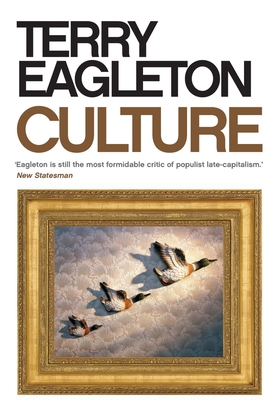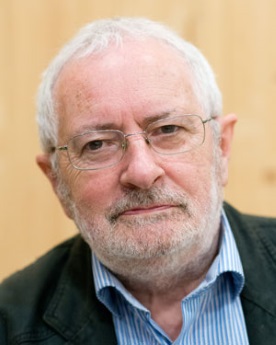

 Yale University Press
Yale University Press
Culture


Key Metrics
- Terry Eagleton
- Yale University Press
- Paperback
- 9780300228731
- 8.2 X 5.5 X 0.6 inches
- 0.55 pounds
- Social Science > Anthropology - Cultural & Social
- English
 Secure Transaction
Secure TransactionBook Description
Culture is a defining aspect of what it means to be human. Defining culture and pinpointing its role in our lives is not, however, so straightforward. Terry Eagleton, one of our foremost literary and cultural critics, is uniquely poised to take on the challenge. In this keenly analytical and acerbically funny book, he explores how culture and our conceptualizations of it have evolved over the last two centuries--from rarified sphere to humble practices, and from a bulwark against industrialism's encroaches to present-day capitalism's most profitable export. Ranging over art and literature as well as philosophy and anthropology, and major but somewhat unfashionable thinkers like Johann Gottfried Herder and Edmund Burke as well as T. S. Eliot, Matthew Arnold, Raymond Williams, and Oscar Wilde, Eagleton provides a cogent overview of culture set firmly in its historical and theoretical contexts, illuminating its collusion with colonialism, nationalism, the decline of religion, and the rise of and rule over the uncultured masses. Eagleton also examines culture today, lambasting the commodification and co-option of a force that, properly understood, is a vital means for us to cultivate and enrich our social lives, and can even provide the impetus to transform civil society.
Author Bio
Terry Eagleton, the internationally celebrated literary scholar and cultural theorist, is Distinguished Professor of English Literature within the Department of English and Creative Writing. Professor Eagleton’s post at Lancaster includes giving both public and undergraduate lectures, offering open MA seminars, and giving specialist PhD tutorials. For full details, please see our events page.
Professor Eagleton, who has written around fifty books and is himself the subject of at least two monographs, is one of the world’s leading literary critics and, according to The Independent, ‘the man who succeeded F. R. Leavis as Britain's most influential academic critic.’ Prior to his move to Lancaster in 2008 Professor Eagleton was John Edward Taylor Professor of English Literature at the University of Manchester (2001-2008) and before that Thomas Warton Professor of English Literature at the University of Oxford (1992-2001). Professor Eagleton is a Fellow of both the British Academy and the English Association, and has held visiting appointments at such universities as Cornell, Duke, Iowa, Melbourne, Notre Dame, Trinity College Dublin, and Yale.
Eagleton obtained his PhD at Cambridge where he was a student of the famous left-wing literary critic Raymond Williams. He then became a Fellow of Jesus College, Cambridge, the youngest fellow since the eighteenth century, before moving to Wadham College, Oxford in 1968. At this early point in his career Eagleton was a Victorianist but he was always drawn to write on a wide range of periods – among his first books were Shakespeare and Society (1967) and Exiles and Emigrés: Studies in Modern Literature (1970). It was, though, his more theoretical work as a Marxist critic, in such books as Criticism and Ideology (1976), which really established him as a leading figure within literary studies.
In the 1980s, Eagleton engaged extensively with the various tides of continental thought that were impacting upon English Literature and he did so most famously in his book Literary Theory (1983) which remains to this day an academic best-seller. Eagleton’s specifically Marxist take on literary theory is evident throughout this book and clearly informs his continuing work on ideology, most famously The Ideology of the Aesthetic (1990), and his critique of the postmodern turn in cultural theory, witness The Illusions of Postmodernism (1996), and indeed his more recent work - see Why Marx Was Right (2011).
Alongside his theoretical and critical work, Eagleton was, at this time, also developing a creative dimension to his work; this led to the well-reviewed novel Saints and Scholars (1987), several widely-performed plays such as Saint Oscar (1989), the screen-play for Derek Jarman’s film Wittgenstein (1993), and indeed a best-selling memoir, The Gatekeeper (2001). Well to the fore in much of this creative work is Eagleton’s Irish ancestry and his keen interest in the political history of Ireland, an interest which is also evident in such critical work as Heathcliff and the Great Hunger (1995) and Crazy John and the Bishop (1998).
Eagleton’s Irishness connects with a Catholicism which is evident not only in very early books like The New Left Church (1966) but also such recent works as Sweet Violence (2003), Holy Terror (2005), and Trouble with Strangers (2008). These books have played a part in Eagleton’s development as a public intellectual, a role he takes on, for example, in The Meaning of Life (2007), a series of lectures delivered at Yale University in 2008 since published as Reason, Faith, and Revolution, and indeed his 2013 book,Across the Pond: An Englishman's View of America.
He remains, however, more than ever concerned with the meaning of literature, and even (if you will) the words on the page – hence, The English Novel (2004), How to Read a Poem (2008), and The Event of Literature (2012).
Source: Lancaster University
Photo Credit: Ben Evans
Videos
No Videos
Community reviews
Write a ReviewNo Community reviews